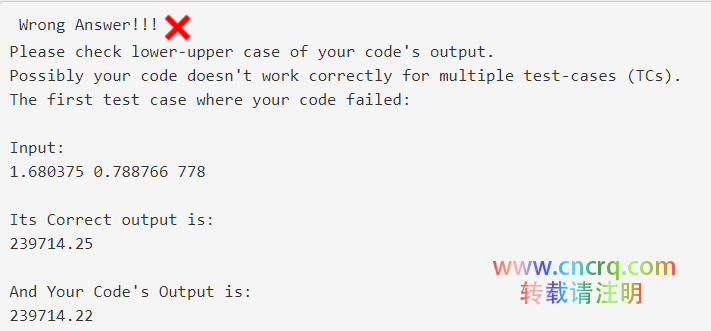A series with same common difference is known as arithmetic series. The first term of series is 'a' and common difference is d. The series looks like a, a + d, a + 2d, a + 3d, . . . Find the sum of series.具有相同共同差异的系列被称为算术系列。系列的第一个术语是“ a ”,共同的区别是d。该系列看起来像a + d,a + 2d,a + 3d...找到系列的总和。
Input : a = 1
d = 2
n = 4
Output : 16
+ 3 + 5 + 7 = 16
Input : a = 2.5
d = 1.5
n = 20
Output : 335
Input:
The first line consists of an integer T i.e number of test cases. The first line and only line of each test case consists of three integers a,d,n.
输入:
第一行由整数T即测试用例数组成。每个测试用例的第一行和第一行由三个整数a,d,n组成。
Output:
Print the sum of the series. With two decimal places.
输出:
打印系列的总和。有两位小数。
Constraints:
1<=T<=100
1<=a,d,n<=1000
约束:
1 <= T <= 100
1 <= a,d,n <= 1000
Example:
Input: 1 2 4 2.5 1.5 20 Output: 16.00 335.00
其实,就是一个等差数列的求和问题,不过需要注意的是输出是两位小数。
下面是我的代码实现:
#include
#include
int main()
{
int n,i,j;
scanf("%d",&n);
for(i=0;i<n;i++)
{
float a,d,n;
scanf("%f %f %f",&a,&d,&n);
printf("%.2f\n",n*a+n*(n-1)*d/2);
}
return 0;
}
然后竟然出现了错误?一起来看一下:



